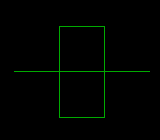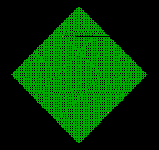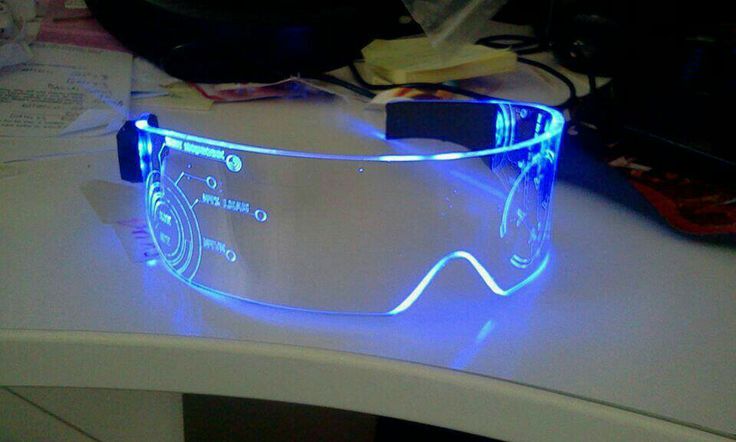

In geometry, the tracing of the one dimensional Peano curve through an infinite symmetry results in a covering of the fractional dimension between point and plane, a fractal of intermediate dimension. I wished to become a human fractal, spanning the dimensions between the pitiful singularity I'd become to regain the depth of soul and purpose that defines a human being. 

"Kevin, we need to get me on-line," I told Armstrong, who visited the day after my operation. "I need to be writing my control software. I need my HyperMind connection!" I was way ahead of myself, I was still in a drug haze. I'd just had neurophotonic chips placed in my brain with fiberoptic connector plugs still bandaged on both sides of my head. 

"It'll take some tweaking," he replied diplomatically. "You can use voice recognition to get started .." "I thought we would have the fiber connectors rigged right away??," I sounded disappointed. "Patience, grasshopper," Armstrong replied jokingly. "We have to build connector circuits by hand. We have a long way to go before we can even test the connections." "Then voice commands will have to do," I remained chipper. "I don't know how I would have survived without voice recognition on my tablet," I added on a brighter note, still in a bit of drug fog. I was addicted to chatting with Institute colleagues, as bad as a teenager. "You have essentially zero function in your arms and hands," Armstrong mused. "So a regular computer keyboard would be useless. That's why we need to get the neurophotonic link up and running. In the mean time, baby steps."
"I'll use my nose to type if it comes to that," I returned
resolutely.
"There are some spare breath activated keyboards," Armstrong continue with a
sly grin. "You blow through
a straw to activate the keys and we could find you one of those
. . . ." "You're joking, right?" I interrupted. "Those systems are Neanderthal!" "Listen, I was joking Steve. A voice recognition system will work to get you started, and a ethernet cable to the Internet." That was a beginning, but I must have looked disappointed. "And we have links to Bubba Graham up at the California Institute Artificial Intelligence Center." I lit up. "CIAIC does advanced voice recognition but they also do user interface research that goes way beyond voice." Armstrong pondered. "They've been designing a custom system for months for this project." "Defence money?' I queried. "Even better," Armstrong smiled. ""Gamer money! Though there's a lot of Defence money behind the scenes as well." "So when can I start?" "I'll call Bubba now," Armstrong replied. "He should have something to demo."
"Even bung poor Bangladeshis have voice recognition," Graham teleconferenced with us. "We want to go far beyond that. We've got a commercial grade system already up and running that will do the trick, a lot better than that MicroByte game controller crap." Bubba and I both laughed. The MicroByte monopoly might own the world, but its software was held in contempt by computer cognoscenti. Bubba continued. "What you're going to need long term is a heads-up display system like they're using in jet fighters, but also a biometric feedback system to hook to your neurophontonic circuits, the kind the black-ops people use. One of our own prototypes will be available within the next few weeks. If you let us take test data off it I don't see why we couldn't let you use it to jumpstart your part of the Future Warrior project. Normally you'd need security clearance . ." "This isn't that helmet with a control display on the visor you were showing me, is it ?" Armstrong interrupted, changing the subject. "Trust me, nothing so crude," Graham explained. "We've been working on some things that look like sunglasses with neural sensors patches. Sort of like the ancient Google Glass system. But it goes far beyond that. State of the art." "Research in the field of functional electrical stimulation has led to a new generation of high-electrode-count devices that give selective access to neural populations." Bubba recited some tech boilerplate. "Incorporation of these devices into research and clinical applications has been hampered by the lack of hardware and software platforms capable of taking full advantage of them." "That's where Dr. Heller comes in," Armstrong interjected on my behalf. "If anyone has the ability to code a high tech interface, he's your man." "That's where we can work together," Graham continued. "Creating a closed-loop electrical stimulation platform built specifically for high-electrode-count neural interface devices. Stimulus-response mapping and feedback-based control routines with a central control module, a 11000-channel stimulator, an array of biometric devices, and a 160-channel data recording module.""Another Department of Defence contract?" Armstrong groaned. "Nope, the DOD are small fry. The big money is in gaming controllers for virtual Reality machines." Graham returned sincerely. "The 10 to 16 year old juvenile market is a lot more lucrative than defence contracts. The military is interested, but they can't afford to pay the freight with all the budget cutbacks to fund the World Foodstamp program." We ended our conference call and I admit I was excited. Even in this age of ubiquitous electronics, most people use their smartphones for gossip and computers and tablets as office typewriters - just calculators little removed from an abacus. Their 6G smartlink to the Internet is rarely used for intellectual pursuits; more as a mini electronic opiate substitute for the good old antique boob tube. In contrast, the networked system I wanted to build would be an extension of my soul, a way to enter data on the fly into the computerized neural-net controlling my body. The interface Graham was proposing just might transform a quadriplegic into a human being. It had to.
Graham was a balding roundish man, but built powerfully, as engineers bred in Texas seem to be. He'd spent time in the military during the Global Warming skirmishes to destroy coal fired plants on the Indian subcontinent, and bore the scars to prove it. He seemed happy to be working with us." "Kooool!" He said. It is professional courtesy to say "kool". The voice connection software wasn't anything too special, it was just dictation software like the Neanderthal Alexa systems, modified to throw off functional analog to digital commands, but it would open up worlds for me. "Let's rock and roll," Andy encouraged after he'd installed the voice analyzer software on the work station and the system recognized voice input. "I'll try a few commands to warm up," I suggested. "Let's see if this voice system really works." "LIST", I spoke to the voice recognition card. UNRECOGNIZED COMMAND, the female computer voiced back robotically. "That voice has the soul of a pipe wrench," I complained. "That's one of the first things that has to go." "Maybe you could use Laura Silvan's voice," Andy teased. I groaned, but it wasn't a half bad idea actually. After several missed attempts, we finally read the manual and figured out how to train the system to convert voice commands into a usable format. Once again our crew of computer wizards had failed the real world test. Read the instructions! "Okay, try it again," Eric coached. "LIST," I commanded again, and the operating system dutifully listed all the files and directories on the current drive. The window was finally open and I had access to a computer system, though the heads-up visor Bubba had promised would be a quantum leap further. "What's in this file, NUDEBEACH.JPG" I asked innocently. "That's not my file, that's Eric's," Andy denied responsibility. "Though you have to admit porn built the Internet!" They both smiled, but that was the truth. The world was networked with a vast neural net whose pipes were filled with people downloading kink. I could only wonder how many petabytes of off-color photos were digitized and sitting on the network that was to be my entire life. Now that some semblance of basic physical health was returning to me, I was allowed access to the hospital physical therapy offices where the workstation computer Andy and Eric had brought for the project was stored. I'd be able to program in the off hours to my hearts content (as long as I could find a source of Pepsi and Snickers bars for fuel). Oh, I know, I could have just apped in from my smart tablet, but I am a bit oldschool and like to be in communion with my hardware. Normally, I would have been released from the hospital at this point and sent to a rehab center, or worse - a National Patient Care Center where "inconvenient people" were sent to expire. Sort of abortion for adults, though no one called it that - not out loud. Or I could look forward to being cast adrift at the mercy of friends and relatives who would have to care for me the rest of their lives, or my life, whichever ended first. But because this was a university medical hospital and I was part of a research project, I'd be staying at least one more month. As long as the National Health Care system wasn't paying for it, there wasn't much Dr. Freeman could do to stop a university project. I took advantage of my free time by programming like my life depended on it. Which it did. public void gastronemius_control_module(int delay, int force) extern int position_matrix[4] [4]; int decay_rate, force_coefficients[16]; int i, j, k, m;
{
for(i=0; i<=3; i++ )
{
for(j=0; j<=4; j++)
{
for (k=0; k<=15; k++)
{
force_coefficient[k]=position_matrix[i] [j]
* power_matrix[i] [j];
send_serial(k,force_coefficient[k]);
}
}
}
}
Complete unadulterated chaos is what defines a computer program, held only in check by a nebulous feeling that if you can just keep from going crazy, maybe you can pull enough lines of code together to make it all work. I had no choice but to make it work. The routines I dictated to my computer monitor were the ones that would flex the muscles of my body and make me human again. I had no option left in the entire goddamn universe but to make a coherent whole of the tangled spaghetti code that Andy and Eric had so painfully stitched together. Desperation is not a strong enough word to describe my situation. "Andy, this is the worst kludged together mess of software I've ever seen!" I told him late one evening as we worked together to try and clean up the code. " Some of it is military robotics java code we ported from other systems," he apologized. "Some of it is smart app code, some of it comes from virtual simulation game controllers. Human limb joints have three axis of freedom, the amount of matrix crunching is incredible." " Don't be so apologetic," I reassured Andy. "I've got to hand it to you guys, you did a hell of a job getting it all to work." I gave Andy a well deserved compliment. "Well, Eric and I aren't software junkies, that's were you come in. I think we may have even left in some spy drone software." Andy replied with sleepy eyes, a computer hackers trademark. "Show us your stuff, wizard!" He challenged me. We were in a room just down the hall from pathology in a ghoulish corridor that was deserted that time of evening. A retro radio, tuned to KJAZ, echoed down the hall only to be lost in the sounds of the janitors emptying waste baskets. "Its time to get serious about making my neurosuit work, but I need the tools to do the job. I'll need a different software compiler, a profiler and an optimizer that's better than what you've been using. You'll have to pick up some database reference books from my house, they are antediluvian and were never digitized. My cousin Matt's living there while I'm gone and he can let you in." I hadn't seen my house for two months and I was sure Matt had killed all the plants with his brown thumb. And yes, I still owned books, some robotics and database text classics I'd picked up were most on my mind. Andy was about to leave on a combination late night pizza and software run when Laura Silvan came over the radio on KJAZ, singing a new release.
"Andy, there's something else you can get at my house, my video and voice synthesizer software. Matt will know where the stuff is, he's always trying to impress his girlfriends with it."
The days were passing quickly now, too quickly. I was still organically paralyzed and hope of regaining control over my body- my biology was slipping away - had slipped away. It was impossible not to be depressed by this horrendous assault on the ego, but depression was curiously mixed with a new feeling of exhilaration. Each day in physical therapy I was able to move a little more easily under computer control and I began to metamorphose from a static statue into a dynamic body. That's not to say there was much movement or dynamics in what we were doing, I had zero direct control except by typed command from Eric and Andy, since we hadn't ported all the code I'd been working on yet which included voice recognition and some biometric feedback. I could only turn and bend slightly and I swayed in my standing position. Sometimes we were lucky and I could lift my arms to chest level. But at least I was no longer a marble obelisk of cold solid stone. "The next step is to hook the voice recognition into the kinematics program so you can command your movements instead of waiting for Eric to type them in, Kevin Armstrong directed on one of his periodic visits a week later. "That's why you're the faculty adviser and Eric, Andy and myself are just the plebeians on this project." I commented with a smile. I was back to being an unpaid grad student. "We also need some division of labor here," Kevin continued. "Eric should be working more on the new fiber-optic sensor harness you'll be wearing. Andy should be doing more of the dynamic studies he's best at. Steve, you should be doing most of the programming." A light dawned in us at that instant. Maybe we were a team after all, each one with his own unique talents that complimented each other. "It seems like a good idea to me," Eric agreed readily and Andy and I joined in. "We're engineers! We rule the world!" "How about you, rock star?" I asked no one in particular. "YOU GUYS JUST FLOOR ME, YOU'RE A BARREL OF MONKEYS!" Came the dulcimer voice of Laura Silvan out of a speaker on the computer cart. "Where the hell did that come from?" Kevin asked incredulously. Andy and Eric both laughed. They already knew I'd traded the robotic female voice of my computer system for something more agreeable. "Steve's still got a crush on the singer," Andy explained wryly. "He digitized Laura Silvan's voice into the computer and used a translation program to generate speech using her voice. He used the voice recognition box to queue it all up so it seemed there was someone responding to his question. It sounded pretty good to me." "It sounded awful good to me," Sally the therapist spoke up, she'd come over to our section of the exercise room attracted to the computer voice, pushing a timid little girl in a wheel chair who was undergoing therapy for some car accident injuries. "SAY: Hi! What's your name?" I prompted the computer. "HI ! WHAT'S YOUR NAME?" came the response in the lush tones of Laura Silvan, only slightly tinged by the metallic ring of a digitized sound. "Annette," the young girl replied with the first smile I'd seen from her all week. "You guys are real jokers," Sally said in her cheery way. "SAY: Go home Sally, your mother's calling you," I instructed. "GO HOME SALLY, YOU'RE MOTHER'S CALLING YOU!" Little Annette giggled profusely when the computer complied. "That's sick," Sally laughed herself. "Well, sick jokes are about all I have to keep me company," I added morosely, putting a damper on everything. |

 Bubba Graham came into our rehab session the next day with the
heads up display goggles and voice recognition
hardware. You can get voice recognition from a brick anymore,
but what was more important was the datalink into
a heads-up goggles and to a workstation.
Bubba Graham came into our rehab session the next day with the
heads up display goggles and voice recognition
hardware. You can get voice recognition from a brick anymore,
but what was more important was the datalink into
a heads-up goggles and to a workstation.
 Oh sapphire blue
Oh sapphire blue